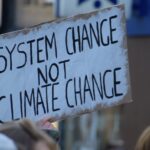Who will own the energy transition?
To mark the release of the Community-led Energy Planning toolkit, Helen Power looks back at the pilot project on which the toolkit is based and considers how ownership relates to the just transition.
There can be no doubt of the willingness of local authorities to support and advance on the UK’s 2050 net zero target, nor that they are well placed to translate national ambitions into action. Our councils have centuries of pedigree in acting as place shapers, problem solvers and conveners, but locally-led interventions can often place them in the firing line of both public and political resistance.
“Oldham Energy Futures […] has taken a different approach”
Citizens assemblies and juries are increasingly popular as a means to building public legitimacy on climate related decision-making. But, while these approaches build consensus amongst participants regarding solutions already on the table, they are rarely used to shape the delivery of energy transition interventions themselves. The Oldham Energy Futures project, of which CLES has been a delivery partner over the last 18 months, has taken a different approach.







